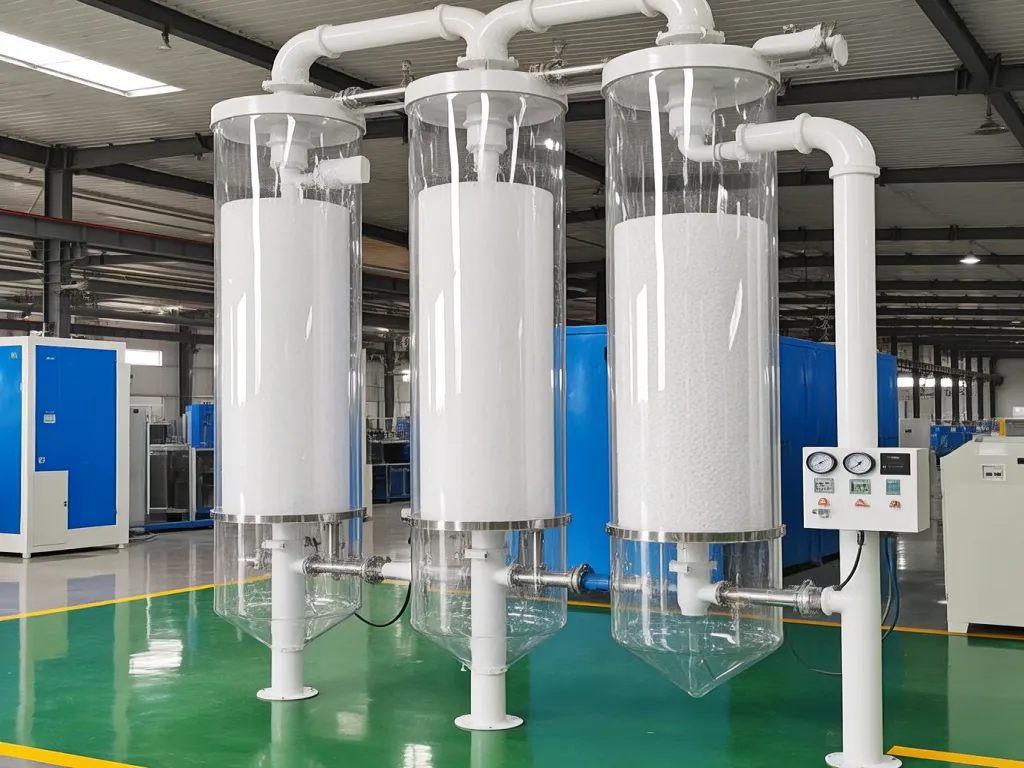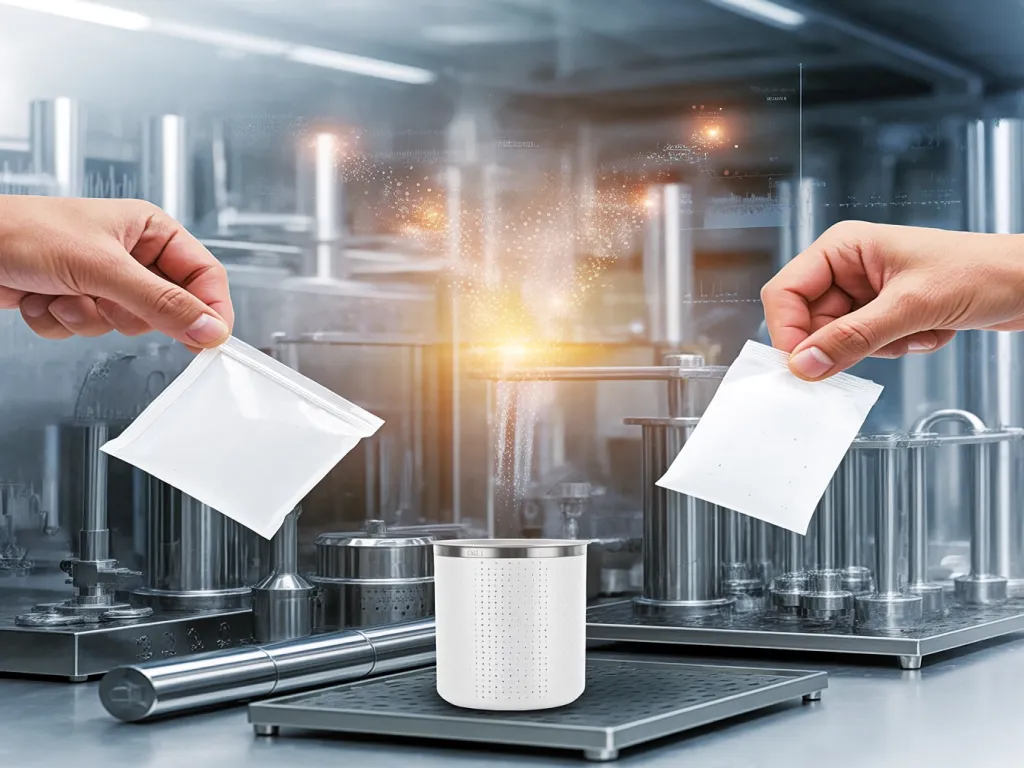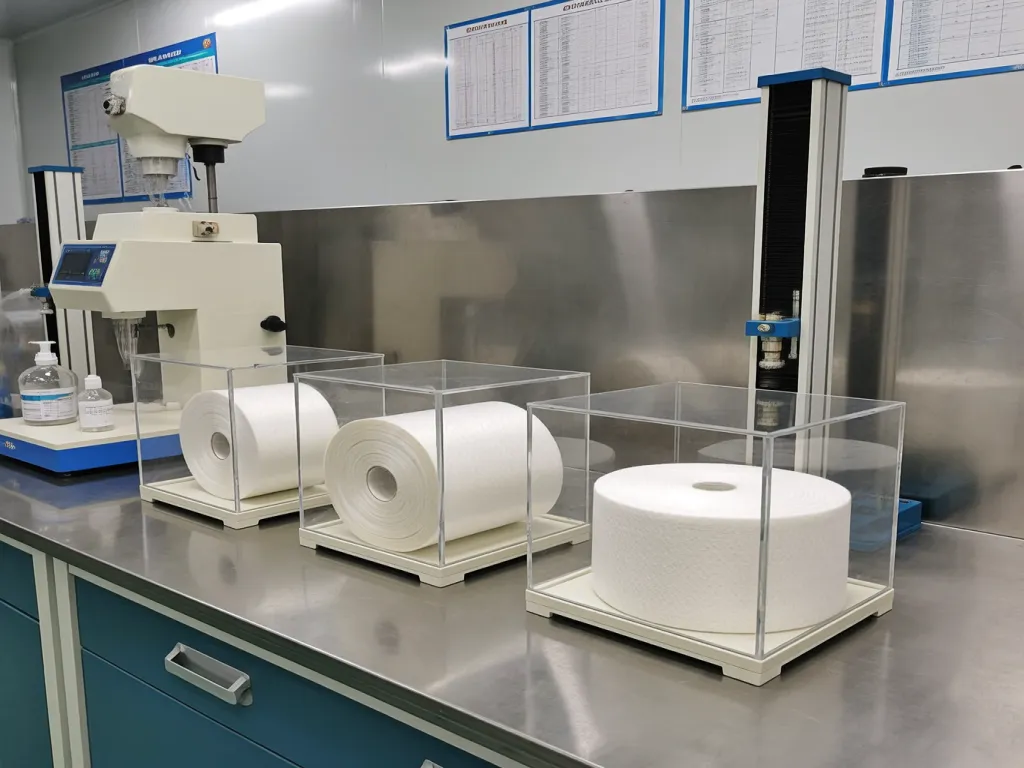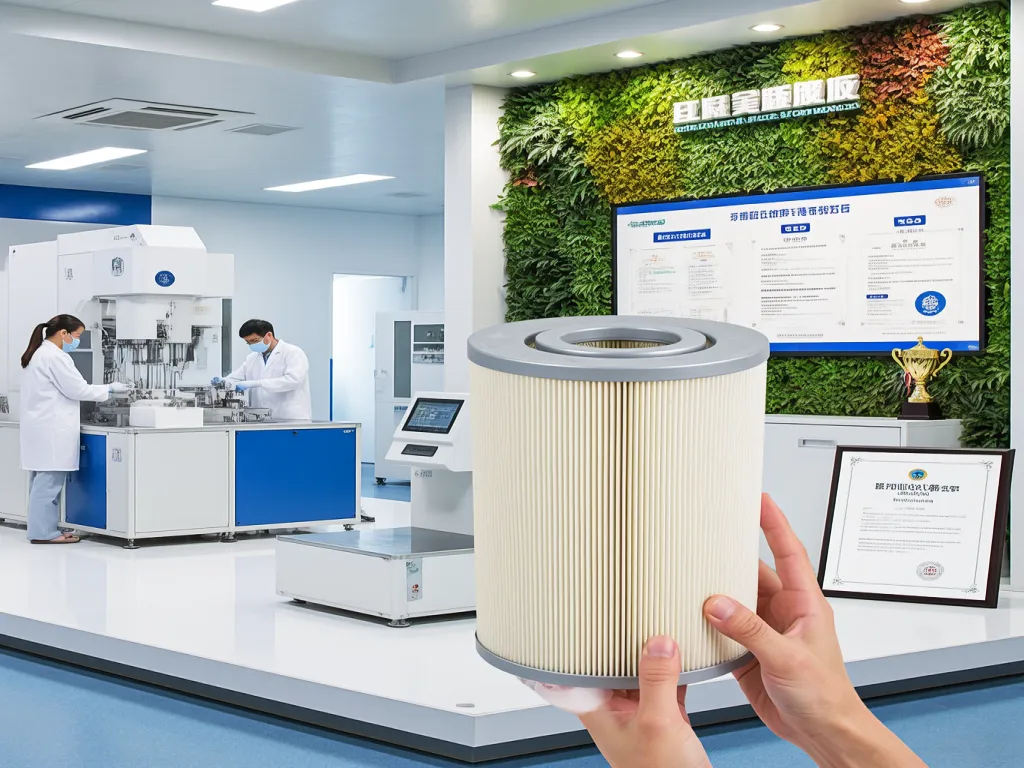Filter Bag Secrets: Top Industrial Manufacturers Revealed

When it comes to industrial filtration, the difference between mediocre and exceptional often boils down to one crucial component: the filter bag. For businesses relying on precise separation processes, choosing the right industrial filter bag manufacturers isn’t just a decision—it’s a strategic necessity. But how do you distinguish between manufacturers who promise performance and those who actually deliver? In this deep dive, we’ll explore the science behind filtration efficiency, material durability, and why your manufacturer’s technical expertise matters more than you think.

Key Factors in Filtration Efficiency: Analyzing the Impact of Filter Bag Material Precision, Porosity, and Application-Specific Selection
When it comes to industrial filtration, the efficiency of your filter bags can make or break your operations. But what exactly drives filtration efficiency? It’s not just about having a filter bag in place; it’s about choosing the right one for your specific needs. Let’s dive into the nitty-gritty of how different materials affect filtration precision, porosity, and ultimately, efficiency. First off, filtration precision is all about how finely a filter bag can separate particles from the fluid or gas passing through it. Imagine trying to sift flour through a mesh – the finer the mesh, the more precise the sifting. Similarly, filter bags made from materials with smaller pore sizes can trap finer particles, leading to higher filtration precision. But here’s the catch: higher precision often means slower flow rates because the fluid has to work harder to pass through those tiny pores. Now, let’s talk about porosity. Porosity refers to the amount of open space within the filter material. A highly porous filter bag allows for faster flow rates because there’s more room for the fluid to move through. However, increased porosity can sometimes compromise filtration precision, as larger pores might let smaller particles slip through. It’s a delicate balance, isn’t it? So, how do you choose the best filter bag for your application? Well, it all boils down to understanding your specific needs. If you’re dealing with fine particles and need high precision, you might opt for a filter bag with smaller pores, even if it means sacrificing a bit on flow rate. On the other hand, if you’re filtering larger particles or need faster processing times, a more porous filter bag could be the way to go. But wait, there’s more to it than just precision and porosity. The material of the filter bag itself plays a crucial role. Different materials have varying levels of chemical resistance, temperature tolerance, and durability. For instance, polyester filter bags are great for general-purpose filtration, offering good chemical resistance and durability at a reasonable cost. Polypropylene, on the other hand, excels in acidic environments and can withstand higher temperatures. And then there’s aramid, known for its exceptional heat resistance and strength, making it ideal for high-temperature applications. Choosing the right material isn’t just about performance; it’s also about longevity. A filter bag that wears out quickly or can’t handle the chemicals in your process will end up costing you more in the long run, both in terms of replacement costs and downtime. Look for manufacturers who offer a range of materials and can guide you in choosing the best one for your application. Ask about their experience with different materials, their testing procedures, and how they ensure quality and consistency in their products. After all, you’re not just buying a filter bag; you’re investing in the efficiency and reliability of your entire filtration system.
The Role of Material in Filtration Precision
The material of your filter bag is the foundation of its filtration precision. Different materials have different pore sizes and structures, which directly impact how finely they can filter particles. For example, a filter bag made from a tightly woven fabric will have smaller pores and higher precision compared to one made from a looser weave. But remember, higher precision comes at the cost of slower flow rates. So, it’s essential to strike a balance between precision and efficiency based on your specific needs.
Porosity and Flow Rate: Finding the Sweet Spot
Porosity is a double-edged sword when it comes to filtration. On one hand, higher porosity means faster flow rates, which can be crucial in high-volume applications. On the other hand, it can reduce filtration precision, allowing smaller particles to pass through. The key is to find the sweet spot where you get enough flow rate without sacrificing too much precision. This often involves testing different materials and pore sizes to see what works best for your process.
Material Selection: Beyond Just Performance
Choosing the right material for your filter bag goes beyond just performance metrics like precision and porosity. You also need to consider factors like chemical resistance, temperature tolerance, and durability. For instance, if you’re filtering acidic fluids, you’ll need a material that can withstand those chemicals without degrading. Similarly, if you’re operating at high temperatures, you’ll need a material that won’t melt or lose its structural integrity. And let’s not forget about durability – a filter bag that wears out quickly will end up costing you more in the long run.

Material Durability Considerations: Exploring Wear Resistance, Chemical Corrosion Resistance, and Long-Term Stability of Common Filter Bag Materials like Polyester, Polypropylene, and Aramid
When it comes to industrial filter bags, the durability of the material is not just a nice-to-have feature—it’s an absolute necessity. After all, these bags are tasked with handling some of the most challenging environments imaginable, from corrosive chemicals to abrasive particles. So, how do you know which material will stand the test of time? Let’s dive into the world of polyester, polypropylene, and aramid to find out.
Polyester: The All-Rounder
Polyester filter bags are the jack-of-all-trades in the industrial filtering world. They offer a well-rounded performance, excelling in wear resistance, chemical resistance, and long-term stability. This makes them a versatile choice for a wide range of applications, from general-purpose filtering to more specialized tasks. If you’re looking for a reliable and cost-effective option, polyester is definitely worth considering.
Polypropylene: The Chemical Warrior
When it comes to chemical resistance, polypropylene filter bags are in a league of their own. They can withstand exposure to a wide range of corrosive substances, making them ideal for industries like chemical processing, pharmaceuticals, and food and beverage. And while they may not be as abrasion-resistant as polyester, they still offer decent wear resistance in most applications. If you’re dealing with harsh chemicals, polypropylene is your go-to material.
Aramid: The Extreme Performer
Aramid filter bags are the heavyweights of the industrial filtering world. They offer unmatched wear resistance, chemical resistance, and long-term stability, making them ideal for the most demanding applications. If you’re operating in an environment with extreme temperatures, high pressures, or highly abrasive particles, aramid is the material for you. While it may come at a higher cost, the performance and reliability it offers are well worth the investment.

Manufacturer Technical Strength Comparison: Evaluating Innovation in Filter Bag Material R&D, Production Processes, and Quality Assurance via Certification and Testing
When it comes to industrial filter bag manufacturers, the technical prowess of each company can be a game-changer. After all, it’s not just about making a bag; it’s about crafting a solution that meets the rigorous demands of various industries. So, how do you sift through the noise and identify the manufacturers that truly stand out? Let’s dive into the world of filter bag material R&D, production processes, and quality assurance through certification and testing.
First off, material R&D is where the magic begins. Leading industrial filter bag manufacturers invest heavily in researching and developing new materials that offer superior filtration performance and durability. For instance, some are pioneering the use of nanofibers in filter bags, which can significantly enhance filtration efficiency by trapping even the tiniest particles. Others are experimenting with eco-friendly materials that reduce environmental impact without compromising on performance. It’s a constant race to innovate, and the manufacturers who stay ahead are those who understand the evolving needs of their customers.
But innovation isn’t just about new materials; it’s also about refining existing ones. Take polyester, for example, a common material used in filter bags. While it’s already known for its durability and chemical resistance, some manufacturers are pushing the boundaries by developing polyester blends that offer even better performance in specific applications. This kind of tailored innovation is what sets apart the top players in the industry.
Now, let’s talk about production processes. The way a filter bag is made can have a profound impact on its quality and longevity. Advanced manufacturing techniques, such as precision cutting and seamless welding, ensure that the bags fit perfectly and don’t leak. Some manufacturers even use automated production lines that minimize human error and maximize consistency. It’s these attention-to-detail processes that result in filter bags that perform reliably, day in and day out.
But how do you know if a manufacturer’s claims hold water? That’s where certification and testing come in. Reputable industrial filter bag manufacturers subject their products to rigorous testing protocols, both in-house and through independent third-party labs. These tests evaluate everything from filtration efficiency to burst strength, ensuring that the bags meet or exceed industry standards. For a deeper understanding of how these standards are set and enforced, you can explore resources like the ISO website, which provides detailed information on international standards.
Certifications are another crucial aspect. Look for manufacturers who have obtained certifications like ISO 9001 for quality management systems or specific industry-related certifications. These certifications are a testament to the manufacturer’s commitment to quality and continuous improvement. They’re not just pieces of paper; they’re proof that the manufacturer has gone the extra mile to ensure their products are top-notch.
So, when you’re evaluating industrial filter bag manufacturers, don’t just take their word for it. Dig deeper. Ask about their material R&D efforts. Inquire about their production processes. And definitely, don’t skip over the certifications and testing. After all, you’re not just buying a filter bag; you’re investing in a solution that needs to perform flawlessly in some of the most demanding environments out there. Choose wisely, and you’ll have a partner who can help you navigate the complexities of industrial filtration with ease.
Material R&D: The Foundation of Innovation
In the realm of industrial filter bag manufacturing, material R&D is the cornerstone of innovation. Manufacturers who excel in this area are constantly exploring new materials and refining existing ones to meet the ever-changing needs of their customers. Whether it’s developing nanofiber-based filter bags for enhanced filtration or creating eco-friendly materials that reduce environmental impact, these companies are at the forefront of technological advancement. Their commitment to R&D ensures that they can offer solutions that are not only effective but also sustainable.
Production Processes: Precision and Consistency
The production processes employed by industrial filter bag manufacturers play a crucial role in determining the quality and longevity of their products. Advanced techniques, such as precision cutting and seamless welding, are used to ensure that the bags fit perfectly and don’t leak. Automated production lines further enhance consistency by minimizing human error. These meticulous processes result in filter bags that perform reliably, even in the most demanding applications. Manufacturers who prioritize production excellence are the ones you can trust to deliver consistent, high-quality products.
Certification and Testing: The Seal of Approval
When it comes to industrial filter bags, certification and testing are non-negotiable. Reputable manufacturers subject their products to rigorous testing protocols, both in-house and through independent third-party labs. These tests evaluate various aspects of the bags, including filtration efficiency, burst strength, and chemical resistance. Certifications, such as ISO 9001, are a testament to the manufacturer’s commitment to quality and continuous improvement. By choosing a manufacturer with these credentials, you’re ensuring that you’re getting a product that has been thoroughly vetted and meets the highest industry standards.
Selecting the right industrial filter bag manufacturers hinges on two critical factors: filtration efficiency and material longevity. Through our analysis of material science, durability testing, and manufacturer innovation, you’re now equipped to evaluate providers beyond surface claims. Remember, optimal filtration isn’t about chasing the cheapest option—it’s about investing in solutions that protect your operations long-term. Ready to upgrade your filtration system? Contact our experts today for tailored recommendations and unlock peak performance for your industrial processes.
